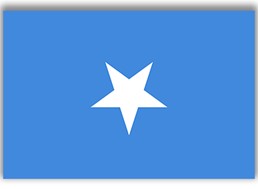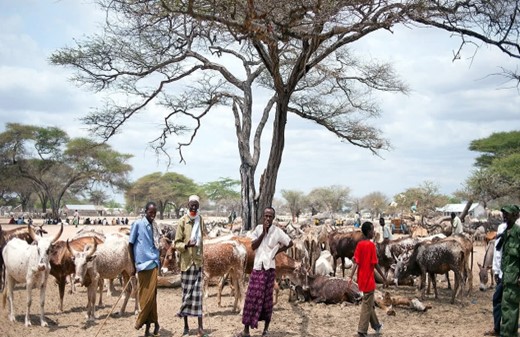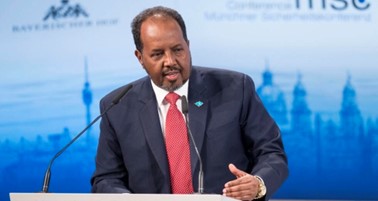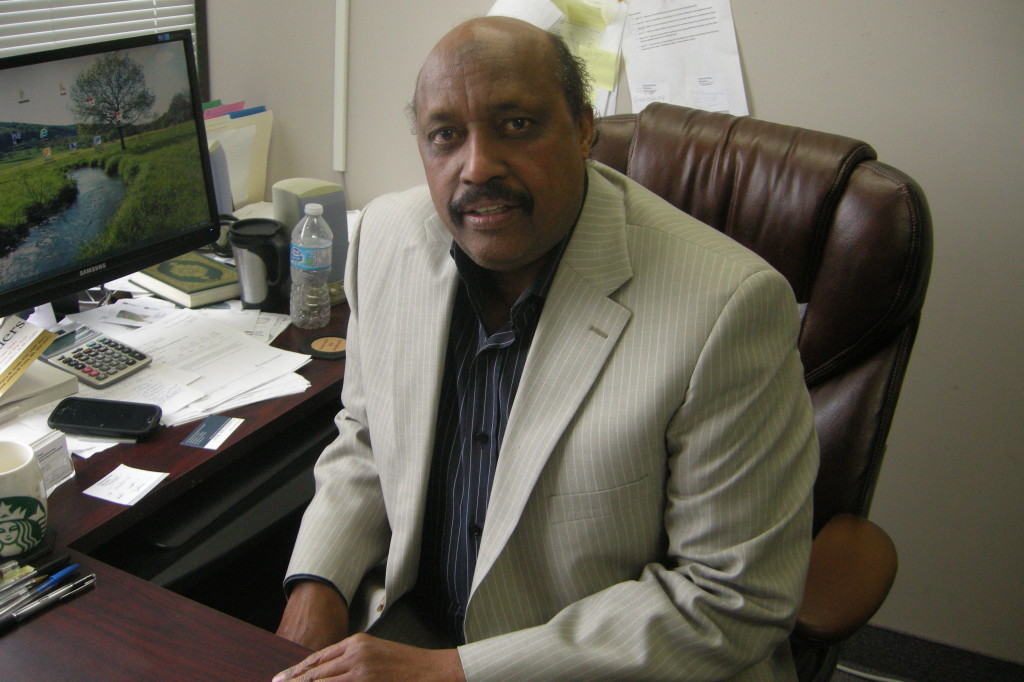
Wednesday 28 June 2023
Somalia celebrates Independence 1 July 2023
By Joy Osiagwu
With its capital in Mogadishu the largest city, Somalia is an African country around the Horn of Africa. The nation has the longest coast of any African nation bordering the Red Sea and the Indian Ocean. Ethiopia also borders Somalia to the west, Djibouti to the northwest and Kenya to the southwest.
Most Somalians are nomadic or semi-nomadic herders, while some are fishers and farmers.
Somalia is one African nation different from many on the continent because of its single homogeneous ethnic group. Despite their differences in local lifestyle, they share a uniform language, religion, and culture. They also trace their heritage to a common ancestor. With a population of 17 million and a land mass of 637,657 sq km, the languages spoken are Somali and Arabic.

Right from the mid-1800s, Colonial rule had kicked into the nation. At the same time, the French controlled the northern region now known as Djibouti; the British colonized north Somalia, which led to the creation of a nation called British Somaliland. On the other hand, the Italians governed Southern Somalia, creating Italian Somaliland. Ethiopia also controlled the inland region of the Ogaden, while Kenya took authority over the northern border where Somalis known as the Northern Frontier District resided.
In 1960, British Somaliland and Italian Somaliland peacefully gained Independence. However, Somalia collapsed into anarchy after the overthrow of the military regime of President Siad Barre in 1991.
An internationally backed unity government was formed in 2000 to curb the war between rival warlords who tore the nation apart. And since 2012, Somalia has been working towards stability. Somalia is a member of the United Nations and one of the sixteen States selected as a pilot for the Action Agenda on Internal Displacement. Th agenda was designed as a roadmap by the United Nations Secretary General, Antonio Guterres in 2022 to assist in resolving, preventing, and addressing internal displacement problems across the globe.
Current Governance structure
The Federal Parliament of Somalia is responsible for the election of the President and Prime Minister. It also has the power to pass and veto laws. It operates a bicameral system consisting of 275-seat (lower) and (upper) houses with 54 representatives. And by law, 30% of all Members of Parliament must be women. The current President is Hassam Sheikh Mohamud. He was elected in May 2022 by the parliament after defeating the incumbent, President Mohamed Abdullahi Mohamed Farmajo, who served from 2017-2022. The struggle against al-Shabab Jihadists dominated his administration. The current president, Mohamud was previously the president from 2012-2017.

Trending news in Somalia
A group of traditional elders in Somalia have successfully negotiated a break in the fight between Armed factions in Somalia’s semi-autonomous state of Puntland. The group agreed to a ceasefire a day after 26 people were killed and 30 injured in a fight over proposed changes to the region’s voting system.
“We talked to the two sides fighting in Garowe. They accepted the ceasefire, and we separated the troops,” Islaan Isse, a traditional leader in Garowe, told a news conference.”
The opposition groups in Puntland on the northeast Indian Ocean coast had accused the region’s leader, Said Abdullahi Deni, of seeking to extend his term in power or manipulate the ballot in his favor beyond January 2024. However, Deni has not responded to the allegations in public.
The Regional forces and followers loyal to the opposition fought street battles in Garowe, the Puntland capital. At the same time, the local parliament debated constitutional amendments, including the introduction of one-man-vote elections. Meanwhile, President Hassan Sheikh Mohamud had called on both sides to silence their weapons to resume negotiations.
Somalia Connections in Ottawa
Thousands of Somali moved to Canada between the late 1980s and 1990s as refugees, with a few secondary migrations from the United States of America. Statistics Canada reports that 150,000 persons of Somali origin reside in various provinces in Canada, with a critical mass in Toronto and Edmonton. The mass movement was due to the Somali refugee crisis, which created a challenging mass displacement worldwide. Thousands of Somalians had fled the nation in the last 30 years due to political instability and the civil war that broke out in the 1990s.
Ottawa Somali Network
Over 20,000 people of Somali extraction moved to Canada or were born to Somali parents, and more continue to migrate to Ottawa, thereby changing the face of the capital region, as reported by CBC News. There is unmistakable evidence of this massive presence based on the Somali institutions and activities of Somalians in Ottawa.
The Somali community in Ottawa is one of the initiative-taking groups in the capital region. Apart from adding value to their community, they have contributed to national development with some brilliant minds making a difference on the political scene. A good example is the leadership of Honourable Ahmed Hussen, the first Somali Canadian Member of Parliament elected in 2015 to represent the riding of York South-Weston. He has since served in various capacities under the Liberal government, with the current being Minister of Housing and Diversity and Inclusion. The minister immigrated to Canada in 1993 and began a career in public service after his high school education. Read more about him and other members of the Somali Community contributing to the positive communal engagements in Ottawa in previous articles and features in the links below from Black Ottawa Scene magazine.
Hon. Ahmed Hussen, first Somali Canadian MP (photo: CIC News).
Canadian Somali Mother’s Association
The Canadian Somali Mother’s Association (CSMA) is one of the organizations offering educational workshops for newcomer parents and families about issues affecting children and youth. The workshops focus on crime prevention in neighborhoods and the educational system. The grassroots organization was awarded the 2014 Black History Ottawa Community Builder Award for Community Leadership.
http://www.hiiraan.com/news2/2011/Feb/somali_mothers_step_up_for_community.aspx
Somali Centre for Family Services

The Somali Centre for Family Services is a non-profit organization and one of the vital institutions in Ottawa with a mission to assist newcomers, multi-ethnic communities, and vulnerable populations. It has a followership of over a thousand three hundred on Facebook @ https://www.facebook.com/somali.centre/.
The office is at 1719 Bank St #305, Ottawa, ON, Canada.
Phone: 613 526-2075.
